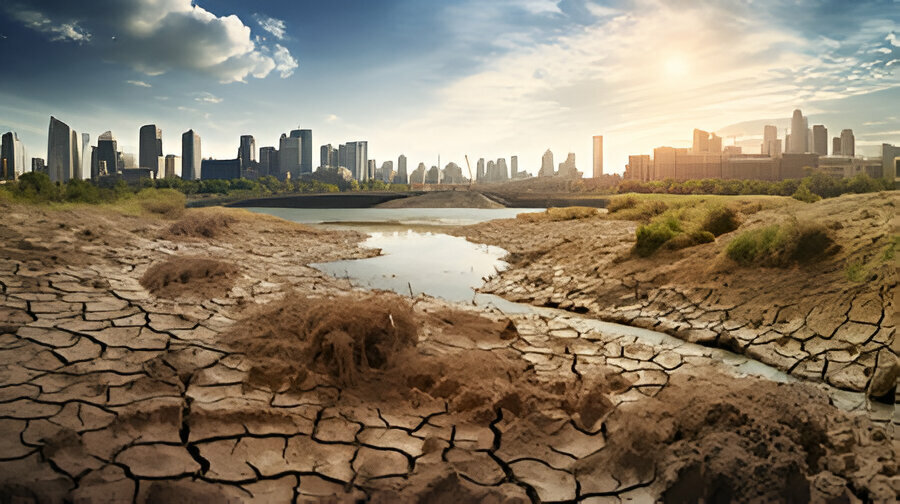The vast rainforest that breathes life into our planet is gasping for air. A new report reveals a chilling truth: human-induced global warming, not El Niño, was the primary culprit behind the unprecedented drought that ravaged the Amazon rainforest in 2023, leaving a trail of ecological devastation and human hardship.
The lifeblood of the rainforest has shrunk to its lowest levels on record, leaving communities isolated and desperate. Hundreds of endangered pink and grey river dolphins perished in the shrinking waterways, while fish succumbed to low oxygen levels. Millions of people who rely on the Amazon for food, transportation, and income now face an uncertain future.
The study pinpoints the culprit, highlighting how global warming, fueled by the burning of fossil fuels, made the drought 30 times more likely. Not only did it reduce rainfall, but also brought scorching temperatures that baked the land, evaporating any remaining moisture and exacerbating the crisis.
“This is a wake-up call,” said Simphiwe Stewart, a researcher with the Red Cross Red Crescent Climate Centre and co-author of the report. “We knew climate change posed a threat to the Amazon, but this drought shows the devastating consequences are already upon us.”
The effects are far-reaching. Along the Amazon River, crops wither and fish disappear, forcing residents to undertake arduous journeys for necessities. In Manaus, the region’s largest city, smoke from wildfires choked millions for months. The drought’s shadow stretches across all nine Amazon countries – Brazil, Colombia, Venezuela, Peru, and more – and is expected to worsen after the rainy season ends in May.
But beyond the immediate human suffering, the report raises alarm bells about the future of the Amazon itself. This vital ecosystem, crucial for absorbing vast amounts of greenhouse gases, is teetering on a precipice. The drought, coupled with ongoing deforestation and climate change, could push the Amazon closer to a point of no return, transforming the lush rainforest into a dry savanna.
“We should be incredibly worried about the health of the Amazon,” emphasized Regina Rodrigues, another co-author of the report. “This drought was unprecedented in its scope and impact, affecting the entire basin. We cannot afford to lose this vital ecosystem.”
The report’s findings demand urgent action. Transitioning to clean energy sources and curbing deforestation are crucial steps to slow the warming and protect the Amazon. But equally important is supporting the communities ravaged by the drought, providing them with the resources and resilience to adapt to this changing reality.
The Amazon’s story is not just about a forest on fire. It’s about the very future of our planet. The choice is ours: turn a blind eye to the flames, or act now to safeguard the rainforest and the communities it sustains. The survival of our planet and its many inhabitants may very well depend on it.
